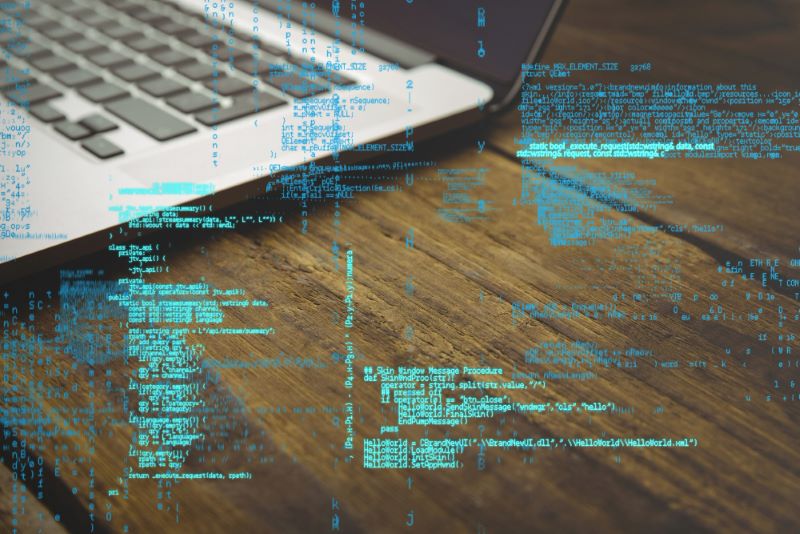A Guide On How To Use A Web Scraping Proxy
Global data creation is forecast to reach a whopping 180 zettabytes by 2025, showing the importance of data to businesses worldwide. Businesses need the ability to collect and analyze this data to make better-informed decisions.
Table of Contents
One way to collect data is through web scraping, extracting information from websites. While you can gather data manually, the process can get tedious when hundreds of websites are involved.
That’s where proxies, bots, and web scrapers come in to save the day. In this guide, you’ll learn about web scraping with a proxy and a guide on choosing the best proxy for web scraping.
What Is Web Scraping?

The process of extracting data from websites is called web scraping. It involves automated processes to access, parse, and extract data from websites.
Businesses employ web scraping to acquire specific data from websites that do not offer an API. Nowadays, most businesses use a web scraping proxy to achieve their scraping tasks.
Most web scraping tools extract data from HTML documents, but some can handle PDFs and other formats.
What Is a Web Scraping Proxy?

A proxy is a server that acts as an intermediary between a client and another server. Clients forward requests to the proxy server, which delivers them to the destination server. The destination server’s response returns to the proxy server, which returns it to the client.
Typically, there are three types of proxies:
- Residential proxies: These proxies are sourced from real consumer internet service providers and have IP addresses associated with actual residences. Residential proxies are the most reliable and least likely to be blocked.
- Data Center proxies: These proxies are housed in data centers. Although these proxies are less reliable, most businesses use them due to their lower prices and faster speeds.
- ISP proxies: ISP proxies are a hybrid of residential and data center proxies. They are issued by consumer internet providers but housed in data centers.
When choosing the best web scraping proxies, businesses must consider their individual needs and requirements. While all proxies have specific uses, they cannot accommodate universal use cases. For example, if a business wants to gather data from a website that is known to block data center proxies, they would need to use a residential proxy rather than another form of proxy.
Businesses must also consider the type of data they are trying to collect. For example, if the target website is behind a login wall or the company wants to gather detailed information that requires more than just making an HTTP request, they must use specialized web scraping software designed for more complex data collection.
Scraping Robot is an excellent example in this regard. The pre-built scraper lets you scrape websites into JSON without the hassle of browser scaling or proxy management.
Why Use Proxies for Web Scraping?

Proxies form a critical part of web scraping infrastructure. Here are the most important reasons to use proxies for web scraping.
Shield your identity
When scraping the web, you must send multiple requests to a website’s server. When the website notices too many requests from the same IP address, it may block you since excessive requests slow down the website. On the other hand, web scraping with a proxy prevents this, as each request appears to come from a different IP address.
Access geo-blocked content
Some websites only allow users from certain countries or regions to access their content. What if you want to scrape data from a website that does not allow visitors from your country? A web scraping proxy can help. With a proxy, you can bypass these restrictions since it changes your IP address to appear as if you are accessing the website from another country or region.
Bypass anti-bot measures
Some websites try to stop web scrapers by using Captchas, which are images with text that humans can read but bots cannot. For example, if a website detects too many requests from the same IP address, it may serve a Captcha to slow down the web scraper. With a proxy, you can avoid this by changing your IP address with each request. This makes it appear that the requests come from different IP addresses, allowing you to bypass the Captcha.
Speed up web scraping
When you use a web scraping proxy, your data collection will be faster. The proxy server stores a cached version of the website, so you don’t have to send a request to the website whenever you want to access it. The proxy server will send you the cached website version, which is much faster than waiting for the website to load.
How to Use Proxies to Web Scrape?

Businesses can use web scraping for many purposes, such as monitoring competitor pricing, extracting data for marketing research, or building price comparison services. Whatever the goal, web scraping can be a powerful tool for business intelligence.
Here’s a quick run-through of how a business can use a web scraping proxy:
- First, you need to choose the best proxies for web scraping. Working with paid proxies is recommended; they’re more reliable and come with 24/7 support.
- Once you have your proxies, you must configure them in your web scraping tool. It will ensure that all your requests go through the proxy server and that your IP address is hidden.
- Now you’re ready to start scraping. Remember to use rotational proxies to avoid getting blocked by websites.
Rayobyte is one of the market’s most reliable proxy service providers if you need anonymous proxies for web scraping. Rayobyte provides ethically-sourced residential, data center, and ISP proxies for businesses that want to make data-driven decisions to get an edge over their competition.
Besides speed and performance, Rayobyte proxies also come with 24/7 dedicated support to help you with any issues you encounter while web scraping.
Enterprise Use Cases for Web Scraping Proxies

Proxies are an integral part of an organization’s data collection strategy. A data scraping proxy can help enterprises do the following:
Conduct market research
Organizations can use web scraping proxies to collect data about their target market. For instance, if a company plans to introduce a product in Asia, it can use proxies to collect data about customer preferences in that region.
Then, the company can use that data to tailor its product offering to suit the needs of Asian customers. Likewise, a company might want to collect data about its competitors. For instance, it may wish to gather data about pricing, products, and strategies from competitor websites to develop a more effective business strategy.
Gauge consumer sentiment
For a business to remain relevant, it must understand how consumers feel about its products and services. A data scraping proxy can help enterprises collect data from social media and other online platforms to gauge consumer sentiment.
Tailor marketing and sales strategies
Businesses can also tailor their sales and marketing strategies to the data they collect with web scraping proxies. For instance, if a company sells products through an online store, it can use data from its customers’ purchase histories to target them with marketing messages for other products in which they might be interested. Similarly, a business can use data collected from web scraping proxies to generate leads for its sales team.
How to Choose the Best Web Scraping Proxies?

When choosing the best data proxy for business use, it’s essential to consider a few factors. Here are some of them.
Purpose
What do you want to use the proxy for? If you use it for competitor analysis, you’d have to collect information from your competitors’ websites. Thus, it would be best if you used residential proxies instead of data center proxies since the former are less likely to be blocked. However, it’s best to work with data center proxies, which are much faster than residential proxies, if you need to track dynamic market trends.
Budget
Your budget is another essential consideration when choosing the best proxy for web scraping. If you have a limited budget, you might want to use a public proxy or a free proxy. However, these proxies are often unreliable and not very fast. Data Center proxies are typically cheaper than residential proxies. So you could use them if you’re a bit tight on budget.
Location
The location of the proxy server is also an important consideration. If you’re targeting a website only available in a specific country, it might be a good idea to use a proxy server in that country.
Final Words

A web scraping proxy can help you monitor prices, collect data for marketing research, or even keep an eye on your competition. Reliability and speed are critical when looking for the best proxies for web scraping. Due to this, you should always opt for a paid proxy over a free one. Paid proxies are more reliable than free ones because professional companies manage them with a vested interest in keeping their servers up and running. Rayobyte is a leading name in this regard, providing 24/7 support for ethically-sourced ISP, residential, and data center proxies.
If you don’t want to bother with proxy usage and management, Scraping Robot is the solution for you. The data is parsed for you, along with usage and stats results, to help you learn everything you can about your target audience’s behavior. Then, you can feed that information directly into your website or database. In addition, they have a reliable support system and 24/7 customer assistance! Reach out to Scraping Robot today!
The information contained within this article, including information posted by official staff, guest-submitted material, message board postings, or other third-party material is presented solely for the purposes of education and furtherance of the knowledge of the reader. All trademarks used in this publication are hereby acknowledged as the property of their respective owners.
